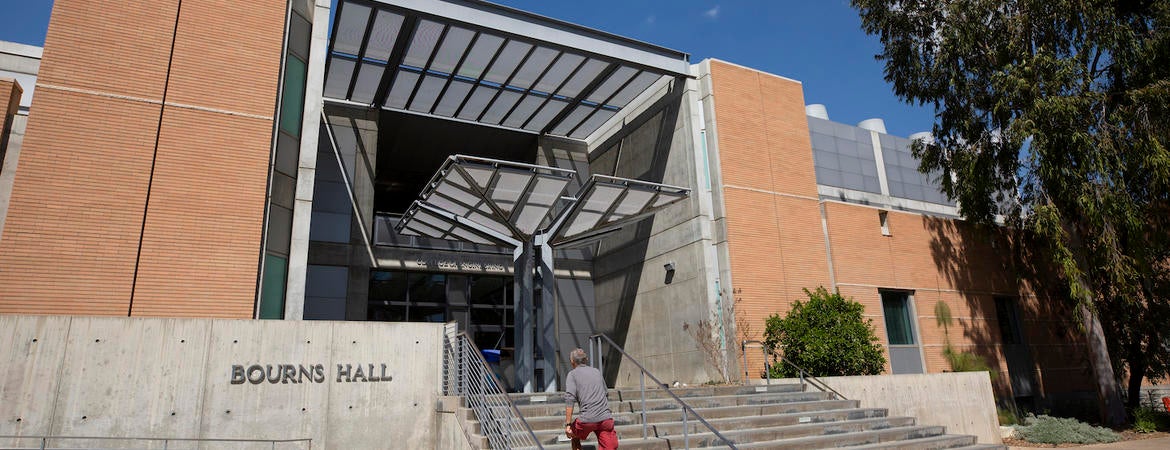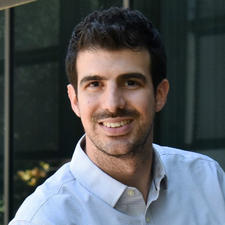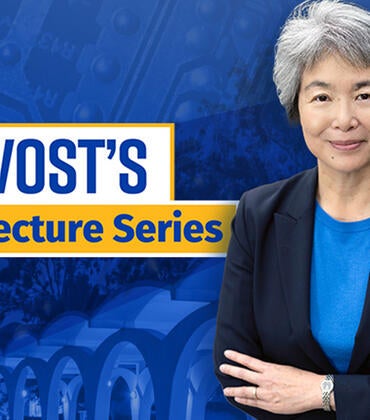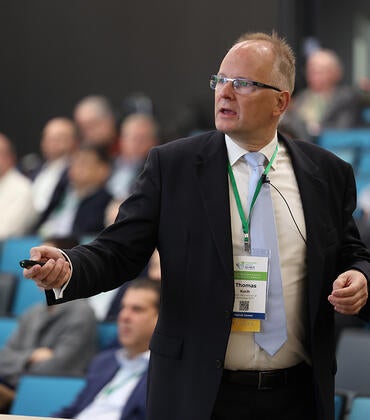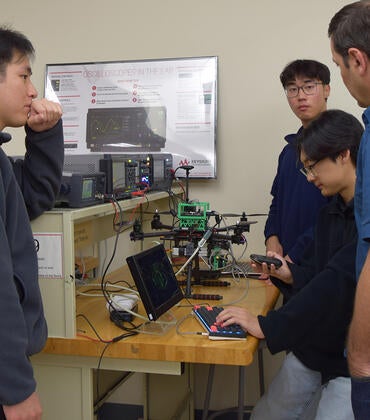Researchers at UC Riverside have received a $1.5 million grant from the National Science Foundation to develop a robotic assistive device to help infants with movement difficulties. The soft wearable device will fit over little arms to support them or offer an extra boost in their movements.
“The goal for the device is to provide as-needed assistance by autonomously yielding to the user’s intention, or applying assistive forces to help the user's arm reach the desired object,” said Konstantinos Karydis, an assistant professor of electrical and computer engineering in the Marlan and Rosemary Bourns College of Engineering and grant lead researcher.
Neuromuscular disorders, such as muscular dystrophy, make movement difficult for infants, who often require motor training to help strengthen their movements and minimize developmental delays. The goal for the robotic device under development is to help infants perform and learn movements, similar to what they would do during a motor training session.
“The device will perceive the intention of an infant to reach for an object and help their arm, but most of the work will be done by the infant,” said Elena Kokkoni, an assistant professor of bioengineering and co-lead researcher on the grant.
The device will leverage soft robotics technology being developed in Karydis’s lab, as well as an array of human-centered closed-loop control strategies by other UCR investigators. Salman Asif, an assistant professor of electrical and computer engineering, will develop a lensless camera system to help users perceive the environment, such as the position of a target object. Bioengineering professor William Grover will help improve the safety and efficiency of the device via air-powered logic “circuits” that dramatically reduce the amount of electronic hardware required to control soft robots. And computer science and engineering professor Philip Brisk will help achieve real-time execution of the control, sensing and actuation via efficient distributed computation algorithms.
Once they have created a prototype, the team will test the device with neurotypical infants as well as infants with neuromuscular diseases of different severity levels, from those with fewer or lower quality movement to those that cannot move at all.
